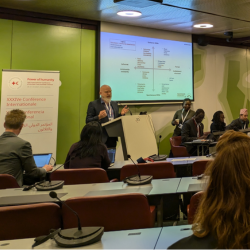-
Study
-
Quick Links
- Course Search
- Unlock Your Potential
- Still time to Apply
- Higher and Degree Apprenticeships
- Continuing Professional Development
- Book an Open Day
-
Undergraduate
- Course Search
- Application Guides
- UCAS Exhibitions
- Foundation Years
- Fees and Funding
- School & College Outreach
- Information for Parents
-
Postgraduate
- Course Search
- Application Guide
- Postgraduate Research Degrees
- Flexible Learning
- Fees and Funding
- Change Direction
- Register your Interest
-
Student Life
- Students' Union
- The Hub - Student Blog
- Accommodation
- Northumbria Sport
- Support for Students
-
Experience Northumbria
- Open Days & Events
- Virtual Tours
- Campus Tours
- Life in Newcastle
-
-
International
International
Northumbria’s global footprint touches every continent across the world, through our global partnerships across 17 institutions in 10 countries, to our 277,000 strong alumni community and 150 recruitment partners – we prepare our students for the challenges of tomorrow. Discover more about how to join Northumbria’s global family or our partnerships.
View our Global Footprint-
Quick Links
- Course Search
- Undergraduate Study
- Postgraduate Study
- Information for Parents
- London Campus
- Northumbria Pathway
- Sign up for Information
-
International Students
- Information for Students
- International Events
- Application Guide
- Entry Requirements and Education Country Agents
- Global Offices
- English Requirements
- English Language Centre
- International student support
-
International Fees and Funding
- International Undergraduate Fees
- International Undergraduate Funding
- International Masters Fees
- International Masters Funding
- International Postgraduate Research Fees
- International Postgraduate Research Funding
-
International Partners
- Agent and Representative Network
- Global Partnerships
- Global Community
-
International Mobility
- Information for Northumbria Students
- Information for Incoming Exchange Students
-
-
Business
Business
The world is changing faster than ever before. The future is there to be won by organisations who find ways to turn today's possibilities into tomorrows competitive edge. In a connected world, collaboration can be the key to success.
More on our Business Services -
Research
Research
Northumbria is a research-rich, business-focused, professional university with a global reputation for academic quality. We conduct ground-breaking research that is responsive to the science & technology, health & well being, economic and social and arts & cultural needs for the communities
Discover more about our Research -
About Us
-
About Northumbria
- Our Strategy
- Our Staff
- Place and Partnerships
- Leadership & Governance
- Academic Departments
- University Services
- History of Northumbria
- Contact us
- Online Shop
-
-
Alumni
Alumni
Northumbria University is renowned for the calibre of its business-ready graduates. Our alumni network has over 246,000 graduates based in 178 countries worldwide in a range of sectors, our alumni are making a real impact on the world.
Our Alumni - Work For Us
What will I learn on this module?
You will learn how to conduct a research led investigation into a management issue, topic or problem guided by your programme of study and framed in the context of an organisation.
Your learning will cover:
• Conducting research in organisations
• The identification of a researchable question.
• Primary research, data collection, questionnaire design, etc.
• Secondary research, literature review, further sources of information.
• The analysis of findings
• Writing recommendations and action plan
• Report writing
• Presentation technique
• Reflection on learning process
How will I learn on this module?
If you study the module on a part-time programme, you will be supported by a series of sessions based around formal input, workshop activities, case discussions and practical exercises on research methods and choosing a research topic. If you study on a distance learning programme you will be supported by online activities on an e- learning platform supported by resources and materials such as podcasts and videos.
You will discuss your progress with an appointed personal supervisor on a regular basis throughout the year and/or with other students as part of an action learning set. Independent Learning is central to this module. In independent learning you will identify and pursue areas of interest and gain deeper or broader knowledge of the subject area, through a range of learning activities that might include, reading, reflection, research etc. The teaching and learning strategy also involves directed learning utilized to meet module learning outcomes. Directed learning will engage you in further research to support and enhance learning in the sessions. You will be given the opportunity to demonstrate this knowledge in the discussions, working groups and assignment.
Critical reflection on knowledge, experience and practice underpins the learning and teaching process along with the explicit development of competence.The module is supported by a teaching and learning plan which outlines the process, and frameworks for directed and independent learning and reading. The necessity of directed work and independent reading are critical dimensions of the module, thus developing you as an independent learner.
How will I be supported academically on this module?
A module dedicated e-learning portal will be available to you which will provide information on aspects of the module including teaching materials, teaching and learning plan and assessment brief and guidance.
You will be provided with the contact details of key module personnel within the module handbook and on the e-learning portal. The module leader will also provide guidance on the content of each module.
You will have a dedicated personal supervisor who will guide you through the Management Investigation providing a series of supervisor meetings where the your work will be discussed, and support and advice given.
What will I be expected to read on this module?
All modules at Northumbria include a range of reading materials that students are expected to engage with. Online reading lists (provided after enrolment) give you access to your reading material for your modules. The Library works in partnership with your module tutors to ensure you have access to the material that you need.
What will I be expected to achieve?
You will be expected to:
Knowledge & Understanding:
1) Demonstrate your critical understanding of how organisations work
2) Identify an organisational problem or issue and decide on a suitable methodology for investigation.
Intellectual / Professional skills & abilities:
3) Critically analyse the problem/issue within the organisational context
4) Apply theory to a practical problem / issue and evaluate / assess a range of possible options
5) Make recommendations for change and improvement via presentation and management report
How will I be assessed?
A 2000 word Project Proposal (MLO 2, 3, 4)A 10000 word project report (MLO1,2 3, 4 &5)Formative assessment will take place through group work, assignment discussion and reflection, discussion board activity on the e-learning portal, case study activity, and theory/practice related discussions.
Criteria will be provided to enable you to understand what is expected of you and how you will be assessed on your performance. You are required to demonstrate self-reflection and reflective practice where appropriate.
Feedback on your summative performance in this module will be provided as follows: Your assessment will be returned to you with annotated comments directly related to the assessment task. You will also be provided with a written comment on actions to be taken to improve performance in assessment overall.
Formative feedback will be provided throughout the module, particularly in relation to Supervision sessions. You should, however be aware that formative feedback can, and will, occur in any communication with an academic tutor.
Pre-requisite(s)
None
Co-requisite(s)
None
Module abstract
This module will enable you to develop your management knowledge, skills and personal effectiveness within the work environment through the critical analysis of a work based problem or issue and the identification of realistic recommendations for improvement / implementation as appropriate. You will critically reflect on 'real world' practices, with a view to using these reflections in implementing appropriate change.
Course info
Credits 60
Level of Study Postgraduate
Mode of Study 15 months
Location Singapore
City Singapore
Start September, December, March or June
All information is accurate at the time of sharing.
Full time Courses are primarily delivered via on-campus face to face learning but could include elements of online learning. Most courses run as planned and as promoted on our website and via our marketing materials, but if there are any substantial changes (as determined by the Competition and Markets Authority) to a course or there is the potential that course may be withdrawn, we will notify all affected applicants as soon as possible with advice and guidance regarding their options. It is also important to be aware that optional modules listed on course pages may be subject to change depending on uptake numbers each year.
Contact time is subject to increase or decrease in line with possible restrictions imposed by the government or the University in the interest of maintaining the health and safety and wellbeing of students, staff, and visitors if this is deemed necessary in future.
Useful Links
Find out about our distinctive approach at
www.northumbria.ac.uk/exp
Admissions Terms and Conditions
northumbria.ac.uk/terms
Fees and Funding
northumbria.ac.uk/fees
Admissions Policy
northumbria.ac.uk/adpolicy
Admissions Complaints Policy
northumbria.ac.uk/complaints









